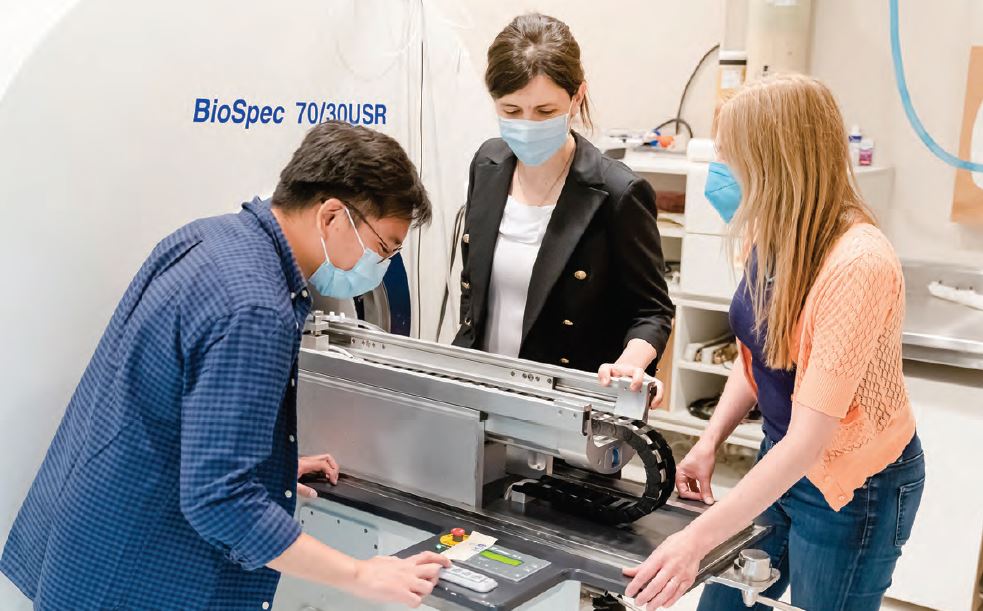Brain Canada is a proud partner to the Canadian Consortium on Neurodegeneration in Aging (CCNA), a cross-country collaborative effort to make strides in our understanding and treatment of dementia. The CCNA has 19 teams looking at various aspects of dementia, from basic science to clinical trials.
“The CCNA, along with partners like Brain Canada, gives Canada the means to step up its game in dementia research,” says Dr. Howard Chertkow, Scientific Director of the Consortium. “This gives us a top-down plan to help synergize and bring scientists together, to attempt to do things that an individual researcher simply cannot do.”
In December 2020, Brain Canada provided a five-year grant totaling $2,500,000 for Phase 2 of the CCNA, with Alzheimer’s Society of Canada providing matched funds. Brain Canada’s funding is contributing to one CCNA team’s goal of exploring the role of vascular illness in dementia, the Women, Sex, Gender, and Dementia (WSGD) cross-cutting program promoting the inclusion of sex and gender considerations across all CCNA research, and network coordination support.

Exploring the Contributions of Vascular Disease to Dementia
More than 400,000 Canadians over the age of 65 live with dementia. Brain Canada funded scientists are committed to improving the aging experience for hundreds of thousands of Canadians by gaining a more thorough understanding of this devastating disease.
“The etiology of dementia is extremely complex,” says Dr. Bojana Stefanovic, a Senior Scientist at Sunnybrook Research Institute in Toronto.
Dr. Stefanovic is co-leading a CCNA team dedicated to understanding and treating vascular contributions to dementia risk. Despite the complexity, she notes, bringing together scientists from across the research spectrum to build a more complete picture of the role of vascular illness will propel progress toward identifying dementia treatments that target the underlying causes of the disease, not simply the symptoms.
A major hurdle in uncovering treatment and care is that, despite its high rate of occurrence, researchers are still investigating the origins of the disease. The role of vascular illness is critical to understand, according to Dr. Stefanovic, because it is one of the strongest risk factors when it comes to dementia—and is much easier to study, diagnose, and treat than dementia itself.
Dr. Stefanovic’s team works on preclinical modelling of vascular disease, to understand how risk factors, such as high blood pressure, might cause arterial stiffness and reduced blood flow to the brain.
The second half of this cross-country partnership, led by Dr. Eric Smith of the University of Calgary, takes a clinical approach, conducting human studies to explore possible therapies for dementia patients with vascular illness. The impact of Brain Canada’s funding for this team, says Dr. Stefanovic, is in the way it brings together researchers at different points in the research pipeline to inform each other’s work. “The preclinical researchers can identify specific pathways and specific comorbidities in dementia, which are then taken up by the clinicians and tested in clinical trials,” Dr. Stefanovic explains. “Then, as clinical trial researchers observe aspects of patients’ condition that might be predictors of treatment’s working better or worse, they can go back to the preclinical researchers and ask them to test those hypotheses in a new model.”
“For one person to understand the complexity of dementia is very unlikely. But if you put together a network of people, all of whom have different perspectives, many of which have different backgrounds and lenses, then together they are much likelier to make true progress.”
Through this network, Brain Canada funding works as a leverage point for more—and more targeted—experiments, leading to a fuller understanding of the many intersecting factors contributing to dementia.
